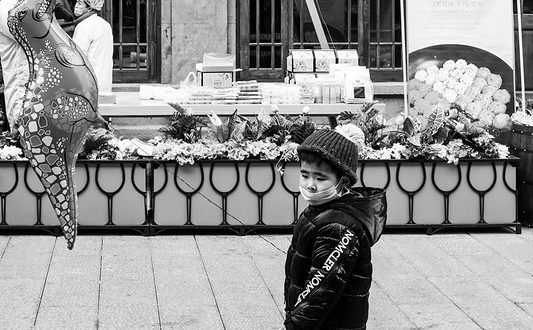Around the world, people are experiencing increased levels of stress, anxiety, depression, and various other negative mental health consequences as a result of the ongoing COVID-19 pandemic. These mental health consequences have stemmed from several sources, including uncertainty regarding the nature of the threat of COVID-19 and associated best safety practices, as well as secondary consequences such as financial hardship, social isolation, and supply shortages.
Children’s mental health may be at particular risk at this time due to chronic limited social exposure. As such, parenting behaviors may play an even more determinant role in their impacts on their children’s mental health, due to so much more of children’s interpersonal interactions being exclusively with their parents. Unfortunately, as parents struggle with their own increased distress related to the pandemic, they may be at higher risk of demonstrating parenting behaviors that lead to worse outcomes for their children.
One specific type of parenting behavior that we thought was particularly relevant to study in the context of the COVID-19 pandemic was controlling parenting behaviors. Controlling parenting behaviors are characterized by overprotection (such as not bringing a socially anxious child to a friend’s birthday party) and psychological coercion (such as telling children “If you loved me you’d do what I asked”). Controlling parenting behaviors are related to negative mental health outcomes in children, especially increased risk for anxiety disorders. Parents typically engage in these types of behaviors to protect their children from, and reduce their own fear or anxiety about, perceived threat. Given the stress parents are currently under, we wanted to investigate whether parents who reported more fear related to the pandemic were more likely to engage in controlling behaviors towards their children.
To study this question, we collected data using Amazon MTurk crowdsourcing marketplace, in which participants completed a battery of surveys online. Participants first responded to these surveys the week of April 13, 2020, and again the week of May 14, 2020, thereby giving us snapshot of their experiences close to the beginning of the pandemic and again one month later. Participants completed measures of parenting behaviors and 4 different negative emotions (fear, anger, sadness, and loneliness) related to the COVID-19 pandemic.
Our results indicated that controlling parenting behaviors were related to all 4 negative emotions the first time they completed the surveys in mid-April, and again when they completed the surveys in mid-May. These results show that the more parents were experiencing any of these negative emotions, the more likely they were to engage in controlling parenting behaviors. However, when we looked at changes in controlling parenting behaviors from mid-April to mid-May, a different pattern emerged. Overall, parents reported engaging in more controlling parenting behaviors in mid-April than in mid-May. However, parents who reported high levels of fear related to the pandemic in mid-April were less likely to reduce these behaviors by mid-May compared to the rest of our sample. High levels of the other 3 negative emotions were not associated with changes in controlling parenting behaviors. Therefore, it seems that COVID-related fear specifically maintained high levels of controlling parenting behaviors at the beginning of the pandemic, and suggests that fear related to the pandemic may be a specific driver of controlling parenting behaviors during this time.
Overall, children are at high risk for negative impacts on their mental health as a result of many aspects of the ongoing pandemic, especially social isolation. More of their interpersonal interactions are currently with their parents, thereby making parent-child interactions more determinant regarding their impacts on child well-being. This study demonstrated that parents experiencing high levels of fear related to the pandemic are most likely to consistently engage in behaviors that place their children at higher risk for negative mental health consequences. Therefore, it will be important to understand moving forward what specific impacts high levels of controlling parenting behaviors have on children during the pandemic, and how these behaviors can be intervened upon to decrease the likelihood of poorer outcomes for children.
Read the full paper: Wissemann, K., Mathes, B., Meyer, A., & Schmidt, N. B. (2021). COVID-related fear maintains controlling parenting behaviors during the pandemic. Cognitive Behaviour Therapy. doi:10.1080/16506073.2021.1878274
Photo by: Gauthier DELECROIX – 郭天


 Cognitive Behaviour Therapy A peer reviewed, multidisciplinary journal devoted to the application of behavioural and cognitive sciences to clinical psychology and psychotherapy.
Cognitive Behaviour Therapy A peer reviewed, multidisciplinary journal devoted to the application of behavioural and cognitive sciences to clinical psychology and psychotherapy.


